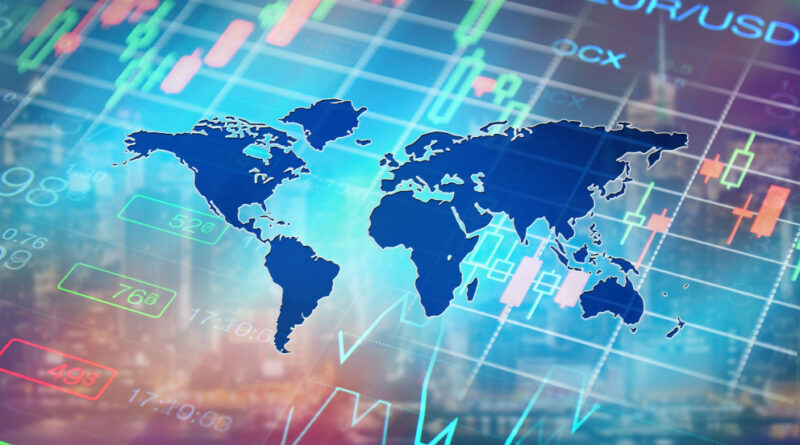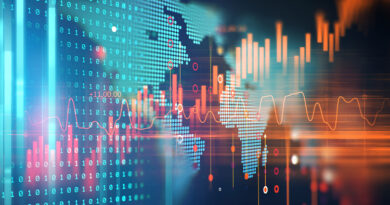A global economic crisis is not as far away as one might think
While the wars in Palestine and Ukraine rage and the international political climate is increasingly tense, the world economy apparently enjoys a positive period, but according to experts this could just be the calm before the storm.
If the US economy currently closes the third quarter on a positive note, growing at a surprising annualized rate of +4.9%, and inflation is falling throughout the rest of the world, a global economic crisis could be lurking behind the corner.
And the Economist experts say it.
The US newspaper, in fact, explains that the foundations of today's economic growth are completely unstable.
Higher interest rates, which are expected to persist over time, could in fact cause a recession and put the sustainability of public debt to the test.
But what are the factors that could lead to a global economic crisis? And above all, is there a possibility of remedying it with new technologies, as the most optimistic claim? It is advisable to clear up any doubts.
Below is everything you need to know about it.
read also In Europe, economic weakness is a fact Global economic crisis not so far away: here's why To understand why today's favorable conditions cannot support the global economy in the long run, three risk factors must be taken into consideration, although some of them are currently producing temporary positive effects on the US economy.
The decline in excess consumer savings.
Consumers have currently spent the money they accumulated during the pandemic and those savings were expected to be exhausted by now.
But recent data suggests families still have $1 trillion left over.
However, these savings can quickly run out, and when they run out, consumers will be forced to reduce their spending due to high interest rates.
The increase in interest rates.
Higher interest rates will make it more expensive to finance economic activities and reduce demand for goods and services.
Furthermore, they could cause businesses to fail.
Some companies that have locked in low rates by issuing long-term debt will face higher financing costs over time.
And increases in business bankruptcies have already been recorded in Europe and the United States.
Home prices will fall as they respond to higher-priced mortgages.
And banks holding long-term securities – which have been supported by short-term borrowing, including from the Fed – will have to raise capital or merge to cover holes in their balance sheets caused by rising rates.
The unsustainability of public debt.
The public debt of many countries has reached record levels during the pandemic.
With higher interest rates, debt financing costs will increase, putting a strain on public finances.
An example? The Economist cannot help but look at Italy, writing that the ECB's holdings of financial bonds are unbalancing the Italian public debt.
It can be deduced that the Italian economy is vulnerable to rising interest rates and now has a high public deficit.
It is therefore difficult to imagine how the world economy can manage to avoid a recession, keep inflation low, manage high debts and high interest rates, all at the same time.
It is more likely, the Economist analysis concludes, that the era of higher interest rates will self-destruct, causing global economic weakness that will allow central banks to cut rates without inflation soaring.
read also Italy avoids recession, but the future is bleak Can artificial intelligence solve a global economic crisis? If it is true that the conditions that can lead to a global economic crisis exist, there are those who look optimistically at the new tools available such as generative artificial intelligence (AI), which could produce growth in productivity.
It would be enough to look at the data published on November 2nd in the United States to understand the potential of Artificial Intelligence.
Data shows that US productivity increased in the third quarter thanks to AI, in fact, if not for the rising valuations of seven technology companies – including Microsoft and Nvidia – the S&P 500 index (the Standard & Poor's 500 is the most important US stock index) of American stocks would have fallen this year.
The potential for AI to lead to further gains may explain why the era of higher interest rates has not hit stock markets so far, as it makes higher rates more bearable.
However, some aspects must be taken into consideration.
The first of all is that some experts fear that investing in AI is a risk due to the similarities with the speculative bubble like in 1999, but not only.
While it is true that the gains from investments in AI can make rates bearable, we must take into consideration what is happening outside the purely economic context.
As the Economist explains: “Governments increasingly distort markets with industrial policy.
Government spending is growing as a share of the economy as the population ages.” Not to mention the ecological transition and the ongoing war conflicts in Ukraine, Palestine and beyond which require greater defense spending.
Faced with all this, anyone who is ready to bet that the world economy can continue to move forward in this (unsustainable) way without taking action by modifying the capitalist productive apparatus runs the risk of being disappointed.
read also World Economy, the worst is feared in 2024.
Here's why




